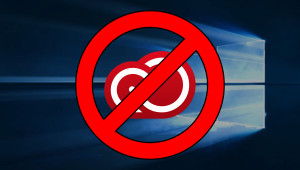Amazon has not responded to our request for comment, but the company does provide a separate document outlining review guidelines from the perspective of the reviewer. The document covers a number of areas which would make a review subject for removal, such as obscene content, advertisements, and copyright infringement. While there is no mention of defamation, there is a key example that “feedback on the seller” would be considered “off-topic” for a product review and is therefore not allowed.
We can’t say with certainty that TD’s allegations that Mediabridge paid for or otherwise faked positive reviews qualify as “feedback on the seller” as Amazon intended it, but it does lend some support to Mr. Smith’s position that TD’s statements shouldn’t be considered a “review.” However, even under the assumption that TD’s statements violate Amazon’s review guidelines, it’s likely that Amazon’s policy prohibiting the request by sellers for the removal of reviews would still remain in force, and that it would be up to Amazon, and not the seller, to take action against the reviewer.
As it stands, Mediabridge products are still listed on Amazon, but they can only be sold via third parties. Mr. Smith is attempting to contact Amazon to determine if the possibility exists for an appeal, but thus far he has received no response.
To Err is Human…
With the future of his company, and the livelihood of his employees, now uncertain, Mr. Smith admits that he never expected such an outcome. He regrets the language used by his company’s attorney in the letter to TD, but he also firmly believes that his company had a right to defend itself. As explained by Mediabridge’s Facebook statement:
It would be like seeing a sign at a Ford dealership, right next to a Mustang that says “this car was made with child labor.” Very different from saying “I heard somewhere that Ford may be using child labor.” What would Ford do? What would you do if you owned a handyman business & someone posted an ad in the township newspaper stating that you steal from your clients?
As evidenced by the reaction, however, most of those responding to the story don’t share Mr. Smith’s assessment, partly due to misconceptions about the events that transpired and partly due to the prevailing belief that online communication shouldn’t be held to the same standards as traditional publications, which laws like those concerning defamation were originally written to cover.
To the former point, many commenters, including some of those responding to TekRevue’s original coverage of the story, reacted under the false belief that Mediabridge had sued a customer who purchased one of its products and then left a negative review. Regardless of how you feel about Mediabridge’s response to the situation, such an assessment is not accurate. While it’s reasonable to argue that the letters sent to TD constitute the first steps of “legal action,” and that the company’s Facebook statement downplayed their significance, Mediabridge did not, and has not, sued TD. It’s also clear that TD’s remarks in his review had very little to do with the product itself, other than his allegations that it was a rebranded version of a cheaper Chinese product.
To the latter point, there’s no simple answer here. The laws of the United States do unequivocally apply to online content and communication, and a case for libel could be argued, but any individual or company doing business on the Internet should have long ago realized that the realities of this amazing global community aren’t always in agreement with laws and regulations. Something that is legal, or even just, is not necessarily wise, and the suppression of online speech, even that which is defamatory, is often an unwise tactic.
That said, mistakes were arguably made by everyone involved. TD was of course free to voice any concerns about Mediabridge, but he should have couched his language in terms signifying that he was expressing his own opinion, rather than the definitive statements he wrote. Mediabridge, on the other hand, should have been aware of the numerous other examples of companies taking legal action against individuals for their online comments and reviews, and recognized that the company usually walks away from such confrontations as the loser, at least in the court of public opinion.
The broader social community, too, which can be so effective when properly informed (i.e., SOPA protests), should have exercised at least some restraint until all of the information was available. It’s difficult not to feel anger toward Mediabridge when the situation is viewed in light of the harsh letter from the company’s attorney, and even now, individuals must choose whether or not to believe Mr. Smith’s claims. But the vitriol directed at the entire company is unfortunate, and even if Mediabridge is forced out of business by this incident, the innocent employees who had absolutely no role in this situation do not deserve the abuse they have received.
But actions carry consequences, and Mediabridge was ultimately the one party out of the trio above that had the most control over the situation. Individuals will continue to make inflammatory statements online regarding just about everything, and those who advocate freedom of expression above all else will continue to band together to combat perceived injustices. Eventually, both will likely run afoul of laws, regulations, and decency.
When you take into account Mediabridge’s current prospects, and the fate of its employees and their families, it’s not a stretch to say that the outcome for the company is not fair. But, to drag out an old truism: “you can’t control what others do, you can only control what you do.” If you believe the company, Mediabridge found itself suffering a significant loss in sales based on the untrue statements of an individual. And while communication with the reviewer may have been reasonably called for, the letter sent by Mediabridge’s attorney wasn’t. Regardless of legal or moral justification, a letter calling a reviewer a liar, threatening impending litigation, and making unreasonable demands (the demand to never mention the company again was a bit much) was the wrong move.
To err is human, and the humans in charge at Mediabridge made a mistake, the consequences of which now affect the lives of dozens of people. Fair or not, it’s up to all of us to decide if one mistake is enough to warrant the virtual destruction of a company. There’s no easy answer to that question, but history is unfortunately not on Mediabridge’s side.
Featured image via Shutterstock

























